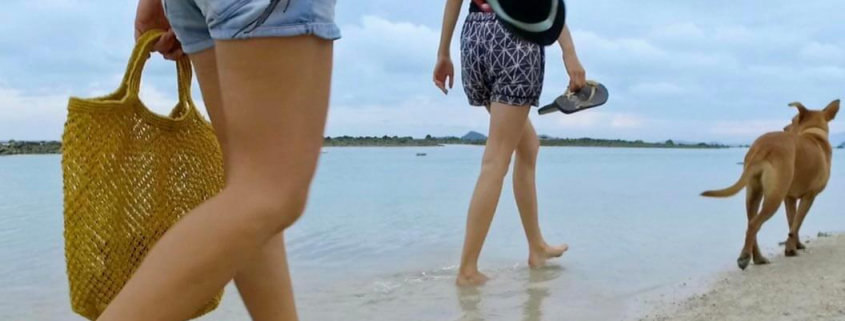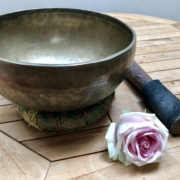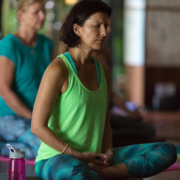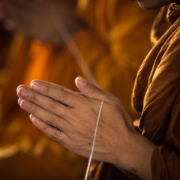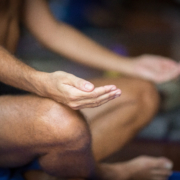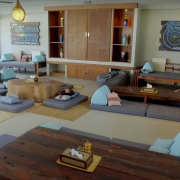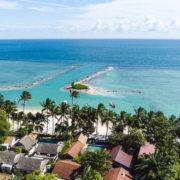 https://samahitaretreat.com/wp-content/uploads/2024/03/DJI_20231220135922_0003_D-scaled.jpg
1920
2560
Kirsten Mia
http://samahitaretreat.com/wp-content/uploads/2024/01/samahita-logo-v2.svg
Kirsten Mia2024-03-20 15:30:592024-03-20 15:30:59Travel, explore, be curious!
https://samahitaretreat.com/wp-content/uploads/2024/03/DJI_20231220135922_0003_D-scaled.jpg
1920
2560
Kirsten Mia
http://samahitaretreat.com/wp-content/uploads/2024/01/samahita-logo-v2.svg
Kirsten Mia2024-03-20 15:30:592024-03-20 15:30:59Travel, explore, be curious!Grounding Ourselves When Fear Arises
UNCERTAINTY.
How do you ground yourself as nervousness and uncertainty rises around you, both tangibly and digitally, in response the global spread of the coronavirus (COVID-19)?
SURVIVAL MODE
I’ve learned through wilderness experiences and survival courses, that when you feel lost in the forest or mountains, the worst thing you can possibly do is run.
If you panic, you subject yourself to exposure, fierce weather shifts, and unknown elements. You may lose any bearings that you possibly had, burn calories that you need to conserve, increase your chance of injury through panicked movement, and unnecessarily indulge in a heightened emotional state that will take away your ability to look at things clearly.
Acting from your sympathetic response, your “fight or flight mode”, with its surge in adrenaline and sense of invincibility, might help you if you need to fend away an attacking animal or engage in a daring, life or death maneuver that requires a moment of courage through a rapid or rappelling down a ridge, but even this isn’t ideal. In actuality, when you face animals, like surprising a brown bear on a trail, the best thing to do is to stay calm, make your body look bigger than it is, speak calmly and sweetly to the animal and slowly back away while facing it.
TAKE EXTRA CARE
For the coronavirus, at the base level, we are advised to take more care and some preventative measures. To take consider more care with:
- Cough etiquette
- Hand washing
- Social distancing
- Symptom care
So take extra care. Sleep well. Rest. Eat nutrient rich food. Exercise. Move. Stay Clean. Be kind. Look within. Love. Take care of those around you.
Sometimes you need to run, and respond quickly, but this is rare.
‘Survival mode,’ in nature, means taking extra measures to move slowly and carefully against your natural tendency of “fight or flight”, to instead head the warnings from this systematic response and flip into a calmer parasympathetic mode. It’s often more advantageous to conserve your energy, to take a detailed survey of the environment around you, to look for and at the resources that you have available, to understand what you immediately need, to innovate and be creative with what you have on your person, and to be clear with what you need to aim to achieve, to make it through the night and on to the next day.
Sometimes ‘survival mode’, means you have to push your body to an unknown limit, trek a bit further to find a likely water source, which may or may not be there, or take cover until a storm passes. Sometimes this can mean staying still and taking rest, making a fire and looking again at the day in the light of the sun.
Above all, survival means effectively managing your mental and emotional state – staying clear and positive, and distinguishing between real threats and perceived dangers.
Acting out of fear tends to bring you closer to death.
“I’m in survival mode” and “I need to take care of myself”.
What does that mean to you?
INDIVIDUAL & SOCIETAL CARE
Destabilizing situations often reveal our hidden, raw needs, the things we hold most important to our underlying existence. They are opportunities to look at how what we need as individuals compares with what we get from our societal structures, organizations, and governments. Globally, there are various reactions to the emergent C-19 virus and perceptions of its severity. It is still wildly unknown.
They can bring to light: How am I taking care of myself? What is it that I really need? What do I want to protect? How do I care for those most close to me? How do I treat the space around me? Other species? What does this tell me about my underlying notions of freedom? What information sources am I listening to and trusting? What resources are available to me, such as: energy, food, water, health care, transportation and waste disposal? And what will happen if those systems become stress or challenged?
Some borders are closing, fears arising, and discrimination and a sense of separation increasing.
Gifted poets, like Cormac McCarthy and Margaret Atwood and Jose Saramago, have brought us through unimaginable, global, catastrophic scenes in The Road, Oryx & Crake, and Blindness. They set up dismal scenarios, of what may happen to society if it gives in to hysteria and fear. But fiction aside, when fears of the unknown arise, essential individual and societal vulnerabilities rise to the surface.
It acts as a call. An invitation.
LOOK WITHIN. PRACTICE.
It’s time to look within, to reflect, to stay in one place for a moment, to let the trees come to us. To reflect and watch if any unknowing, reactive, and sometimes belligerent, explosive responses are triggered within.
Abrupt change allows us to investigate the true nature of an ever-transitioning reality, to move with clear eyes forward through it, and even ground ourselves so we can respond with a spirit of generosity and care, especially when we feel unsure or uncertain about the future.
To respond to life as it is. Not as we tell it to be.
It’s to our own benefit to try to reduce cases of any viral outbreak. To ease the stress on hospitals and our health care systems, to allow care to go to those who need it, to consider the more vulnerable in our communities, to think about our movements and impacts they can have in large social settings, and to use just what we need and go into the world calmly. As we live and participate in communities that are growing and becoming more densely packed every year, and yet open to one another in a thriving global network, this is also a time consider the impact we have on one another in the larger context of a global community.
If we are in our best state, together, we can stand in the forest, decide how we can use our talents and skills, and mental capacity to support and uplift one another.
More from the Samahita Blog
